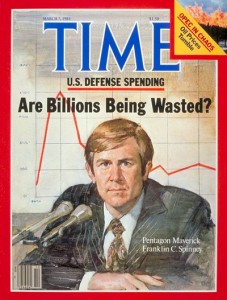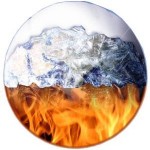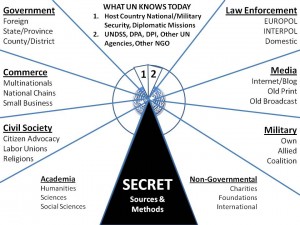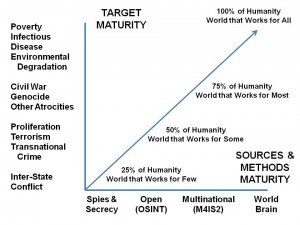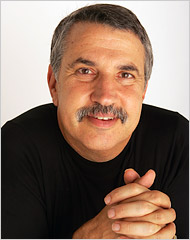
CHUCK SPINNEY SENDS:
The American sources in the attached report of the New York Times blast Turkey, essentially because it refuses to be a US lackey. Even the report’s title drips with contempt and reflects a myopia that is typical of the ego centric view of the perquisites of empire held by the American foreign policy establishment, including the mainstream media. The report's wishy-washy “on the one hand this, on the other hand that” style feeds this overall impression.
Any rational observer of Turkey knows that big things are happening in that country and its part of the world.
Turkey has a large growing economy, is populated by more than 70 million hard working, industrious, increasingly well educated people. It sits on an ocean of fresh water in a parched area of the world — Israel, Iraq, and Syria especially want access to water Turkey controls. Turkey does not even use all its arable land, yet it is a major food exporter in a region of food importers, and local meats, vegetables, grains, and fruits are of the highest quality. The country is metamorphosing into a energy pipeline crossroads, and the Bosporus is the most heavily traveled waterway in the world.
Turkey is a secular democracy, and although many, no doubt a majority of its people are religious, there is very little religious fundamentalism, certainly less proportionally than is evident in either Israel, Iran, or the United States. By an large Turkey’s historic traditions of religious tolerance seem intact — I was recently surprised to learn that there is still a substantial Jewish community in Istanbul that speaks a dialect of 15th Century Spanish at home and Turkish in professional life (a relic from the time when the Ottoman Empire gave sanctuary the Jews in Spain who were persecuted by the Inquisition). I met a member of this community, a prosperous businessman with a magnificent yacht, and he impressed as being Turkish through and through. Interestingly, he told me he was pursuing an offer dual citizenship from Spain (sort of a right of return being instituted by Spain) but had no interest in accepting his automatic offer of citizenship by Israel.
Regardless of whether Turkey eventually enters the EU, it is a country that is moving and being sucked into a regional vacuum left by the collapse of the Soviet Union. Part of this movement is caused by policy, but part of it is caused by the impulse of unpredictable events.
The Turks, to their credit are trying to make the best of this by forging a regional good neighbor policy with all their neighbors, and until recently, this included Israel. To this end, the Turks have, among other things, opened the border for visa free movement between Turkey and Syria, tried to broker a peace deal with the Syrians and Israelis (which the actions of the Israelis scuppered), made overtures of friendship to Armenia, been active in the Black Sea Initiative (basically an effort to protect the environment and delineate the rights and responsibilities of the states bordering on the Black Sea), made commercial overtures toward Iraq and Iran, and most recently, in partnership with Brazil, launched an innovative initiative to defuse the Iranian nuclear problem (which the Obama Administration is petulantly trying to scupper). Meanwhile the Turkish government has been trying to reduce tensions with its own Kurdish minority in eastern Anatolia. While this is a serious problem (and I don’t pretend to understand it), Kurdish separatism and outside agitation by Kurdish insurgents based in Iraq (with some indirect Israeli and American support) and Iran, as well as a history of heavy-handed policies to limit the Kurdish autonomy, all contribute to it. On the other hand, it is also important to acknowledge the fact that Kurds have every right to participate in the Turkish economy and culture as individuals, should they choose to exercise it. And many have done so. One finds Kurds living throughout Turkey, in harmony with their neighbors, working and living prosperously.
Interpreting Turkey’s actions negatively through the lens of America’s imperial pretensions, together with our knee-jerk support of every outrage perpetrated by Israel, is implicit in the statements by the American sources in this report. This attitude is a prescription for making trouble with a proud and independent people whose most recent actions have been focused on a policy of promoting regional comity.
Oh, and one other point — Turks are among the most gracious and welcoming people I have ever met, but push a Turk into a corner, where he perceives he is being treated unfairly and has no face saving exit, and you will have a real problem on your hands.
June 8, 2010
Turkey Goes From Pliable Ally to Thorn for U.S.
By SABRINA TAVERNISE and MICHAEL SLACKMAN
ANKARA, Turkey — For decades, Turkey was one of the United States’ most pliable allies, a strategic border state on the edge of the Middle East that reliably followed American policy. But recently, it has asserted a new approach in the region, its words and methods as likely to provoke Washington as to advance its own interests.
The change in Turkey’s policy burst into public view last week, after the deadly Israeli commando raid on a Turkish flotilla, which nearly severed relations with Israel, Turkey’s longtime ally. Just a month ago, Turkey infuriated the United States when it announced that along with Brazil, it had struck a deal with Iran to ease a nuclear standoff, and on Tuesday it warmly welcomed Iran’s president, Mahmoud Ahmadinejad, and the Russian prime minister, Vladimir V. Putin, at a regional security summit meeting in Istanbul.
Turkey’s shifting foreign policy is making its prime minister, Recep Tayyip Erdogan, a hero to the Arab world, and is openly challenging the way the United States manages its two most pressing issues in the region, Iran’s nuclear program and the Israeli-Palestinian peace process.
Turkey is seen increasingly in Washington as “running around the region doing things that are at cross-purposes to what the big powers in the region want,” said Steven A. Cook, a scholar with the Council on Foreign Relations. The question being asked, he said, is “How do we keep the Turks in their lane?”

